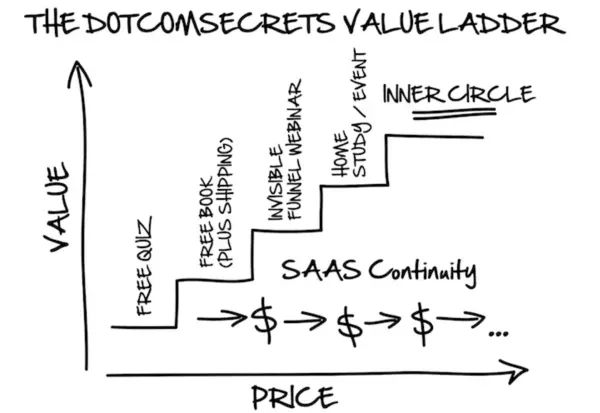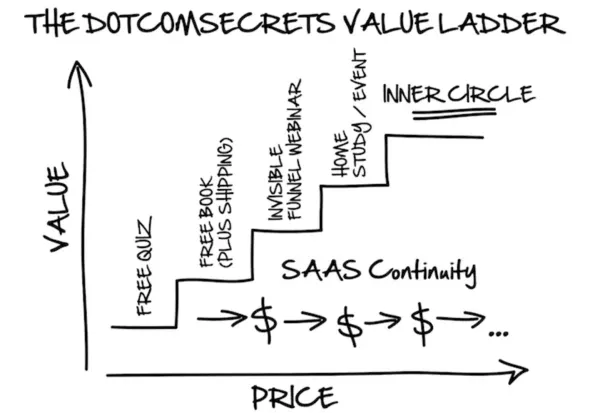Ideas For Starting Side Biz After Work (And Hopefully Make Some Money From It)

Recently I have been thinking of starting a side business after work. I believe every business and side project is about creating value for people and users, with some of my personal experience (I tried some of them before). A few ideas are worth sharing with you, ranging from selling products to selling knowledge.
3 Ways To Start Side Project (From my experience)
- Selling Product (Failed in 2021)
- Create and Selling Service (Succeed in 2018, ran for two years)
- Selling Knowledge (I haven't tried yet)
For sure, selling products will be the easier way, while selling knowledge could be the more challenging, given that you will need to have expertise in a particular domain.
Interestingly, their profit margin also increases when you move up, with selling products being the lowest to selling knowledge the highest.
(P.S. you can say selling pharmaceutical products also have a huge profit margin, but this is more related to side biz that ordinary people can start)
Selling Product
Pros: It is the easier way to start a side business. You can source most of the products you want to sell with minimal effort. Consider drop shipping (What is dropshipping & How does it work? ) or Amazon FBA. Both require sourcing products with lower prices in Aliexpress or 1688 (A B2B platform similar to Taobao) and selling them at a higher price on a website or Amazon. The profit you get is the price difference.
If you are doing a more traditional way, think about Amway or other multi-level marketing, you can get most of the product from dealers and sell it to other people. (The dealer is more pleased to sell it to you).
Cons: Competitive landscape, since we are doing a side business. It is most likely that we are not manufacturing the product by ourselves.
When you open HKTV mall or Taobao, many small merchants sell the exact product, from home appliances to electronics. We might consider how to run a side business (as a one-person company) to compete with products from Taobao and Amazon.
Customer behaviour is challenging to manage. Customers now are used to comparing prices online; Taobao or other online platforms even provide image search features. Suppose the product is not unique enough or has a brand. Selling products would be a challenging business to start.
My Experience: Last year, I tried to start a drop-shipping business. It was a fun experience to learn how to make a website on Shopify, set up ads, and write ad copy. However, the only downside is, I didn't make any money from it.

After spending around 200 USD on F.B. ad, I concluded even getting new orders. A new customer's cost per acquisition (CPA) is too expensive, combined with shipping, website maintenance fee, and ad cost. My profit margin is around 10 to 15%.
It could be an unsustainable business since the marketing channel comes solely on F.B. ads. I also used my credit card for all the payments, factoring in currency exchange fees and credit risk when I scale the business. I will need to pay 1000 USD to get 150 USD profit, so I decide to close the website after a month.
My thought on selling products : There is still a market for selling products online, but it will need to be very niche, with some products people can't find on Taobao and Amazon. Customization products that combine your expertise (such as a custom-made mechanical keyboard) could make this happen.
Selling Service
Service could cover a wide range of things from business service like digital marketing to hosting a workshop/class and teaching people hobbies you enjoy. I think this is a great way to start a side business.
Pros: You are already good at it, and with just a minor twist, you can turn your skill into a service. When I first learned squash last year, I decided to hire a private coach to teach me all the basic techniques. I will also send him my self-practice video so that he can point out improvements I can make with my hitting posture. My squash coach had started playing squash in secondary and is also a part-time athlete. He uses something he is good at during his teaching, adding some explanation and turning it into service.
Cons : Every business could have a distribution problem - meaning finding the right audience for the right product & service. But I believe distribution is more challenging in selling services. Consider selling products. You can run ads on Facebook, Google, and Youtube to reach a certain number of customers interested in your product.
But what about a photography workshop or art lesson. How can you find the right distribution channel to reach the niche audience? Plus, you will also need to demonstrate the value and persuade them to pay and participate.
My Thought & Experience in Selling Service : I used to sell services to people. The service I produced is specifically for tourists who visit Hong Kong. I will teach them how to take photos of the Neon sign in Mong Kok and explain the history and urban development in Hong Kong. It is a successful business, the profit margin is good, and the workshop is unique, making me stand out from the crowd.

The key learning from it, it requires the right distribution channel.
Back then, I only used Airbnb Experience to distribute my service, people could sign up from it, and Airbnb will take a 20% cut from the overall price. The commission is hefty, but it is the only method to reach the tourist who visits Hong Kong. Another point is that we might need to combine multiple skillsets to create a fabulous service.
Imagine you want to start a painting workshop in H.K; you might need to be a good instructor, a good painter, and know of H.K. cityscape/history to explain it during the outdoor painting session.
Apart from solely teaching the skill you are good at, think about the extra value you can create for the customer. And always do more research.
Selling Knowledge
Somehow it is pretty similar to service, but the knowledge here is more intangible. In recent years, you might notice there is more online course teaching you digital marketing, UX design or maybe how to run a drop shipping business. They are not entertaining as the service above but more practical and create more value for the customer.
Pros: Creating and selling courses could be a virtuous cycle for your personal brand. The more effort you spend on teaching, you will earn more influence from people. More people will consider you as an expert in the field.
Cons: Difficult to start. Even though you have some valuable skill, how can it turns into an online course, book or webinar and sell to people? The barrier of entry for selling knowledge that can charge money is high.
My Thought on Selling Knowledge: Even though it is difficult, it doesn't mean it is not worth trying. What about combining your knowledge and service and figuring out what value you can create for the audience. Then decide if the things you produce can charge people money.
Final Thought
I came across this chart below. It is called value ladder.

What is a value ladder?
Start with something small and easy to sell — like free offers — to build initial trust and get the prospect interested in your brand. Provide something free or at low cost first. Such as tips and hacks. When the customer wants to learn more, they will seek online courses. When the ladder is going up, the price also increases.
It could be a way to combine selling knowledge and service together. And I hope you will also start your side business soon.
Member discussion